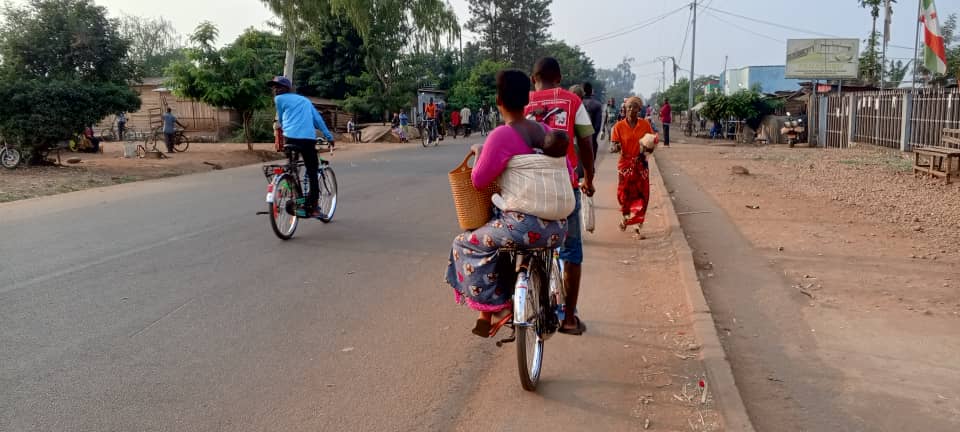Photo of the week : roads that kill, a system that abandons

The Minister of the Interior and Public Security, Martin Niteretse, issued an alert earlier this week in Gitega, the political capital of Burundi, regarding the scale of road accidents in the central regions of the country. More than 200 cases were recorded between March and July 2025, a statistic described as a « silent tragedy » by the minister, who believes that « road accidents claim as many victims as war. »
Addressing security officials, the minister denounced the poor condition of vehicles, excessive speed, and disregard for traffic laws. He ordered the traffic police to immediately remove dilapidated vehicles, punish reckless drivers, and strengthen controls throughout the country. He also called for a national prevention and awareness campaign.
But these promises leave some skeptics. Many citizens accuse the traffic police of systemic corruption. Testimonies collected by SOS Médias Burundi report bribes of 10,000 Bif (Burundi francs) per vehicle every day, particularly on the four main national roads. These practices undermine the effectiveness of the announced measures.
In the countryside, resourcefulness trumps safety.
In the countryside, particularly in Burambi (Burunga province) and Nyakararo, residents experience a different reality. Due to a lack of fuel, passable roads, and financial resources, motorcycles have become the only accessible mode of transportation, sometimes shared between four or five passengers per trip.
« From my house, I have to take a motorcycle to the paved road in Rumonge. Paying alone is too expensive. So we ride three, four, sometimes five, » says Béatrice, a resident of Burambi.
The same observation is made by the motorcyclists :
« It’s not that we want to break the law. We just don’t have a choice. There’s no fuel, people don’t have the money. It’s that or stay home, » explains a young motorcycle taxi rider.
Between poverty and degraded infrastructure
The roads, often in very poor condition, make vehicle use almost impossible. The price of fuel, when it’s available, is unaffordable for the majority. The lack of a reliable public transportation network makes things even worse.
« The minister talks about accidents, it’s true. But for us, accidents start well before that : when we can’t even get to the hospital or the market, » complains a resident of the new district of Rumonge, in the southwest of the country.
A mobility system in need of rethinking
Many voices agree that repressive measures alone will not be enough. As long as poverty, fuel shortages, police corruption, and the lack of viable public transportation are not addressed, Burundi’s roads will remain dangerous.
« We can’t demand that people follow the rules when they have no realistic alternative. The real problem is structural, » analyzes a sociologist based in Gitega.
To sustainably reduce accidents, the state must ensure a safe, accessible, and equitable transportation system. This requires :
The rehabilitation of rural and national roads;
A regular supply of affordable fuel;
Support for public transportation services;
And above all, the fight against corruption within law enforcement.
The road or resignation
Today, in this small east African nation, travel is no longer a right but a risk. As long as the State does not guarantee equitable and safe access to mobility, the roads will continue to bring grief to families and widen the gap between official promises and daily realities.
For many, daily life boils down to a dilemma : stay at home, or ride five people on a motorcycle and hope to arrive alive.
Our photo : a woman carrying a child on the back of a bicycle taxi in an area where accidents are frequent, in northwest Burundi, July 2025 (SOS Médias Burundi)

